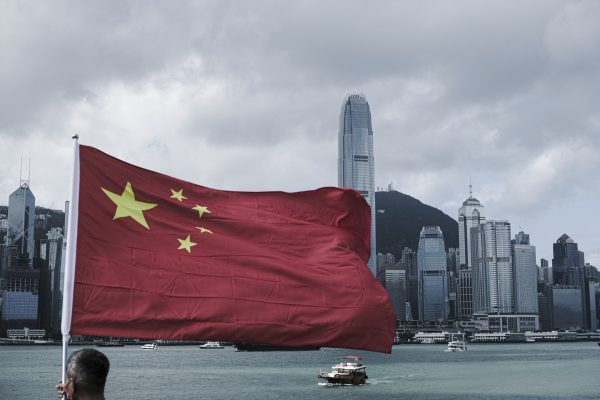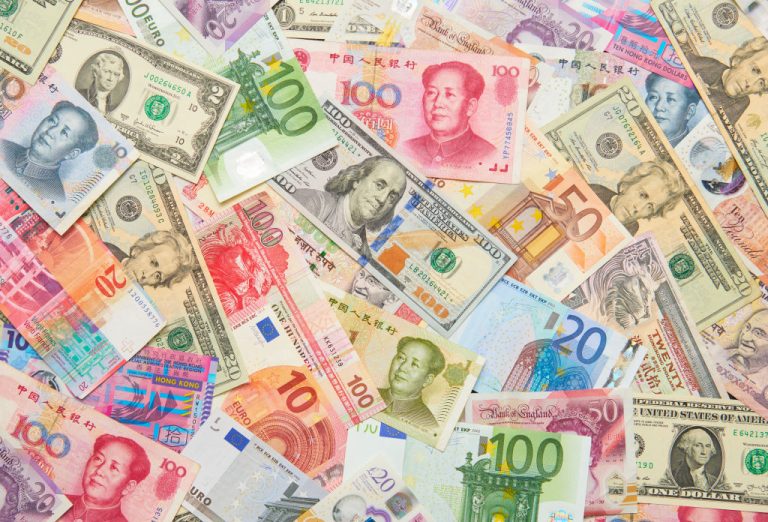Despite messaging by the Chinese Communist Party (CCP) that it’s actively opposed to and addressing money laundering, evidence suggests that the regime not only actively encourages laundering but works with organized crime syndicates, including Mexican drug cartels, as part of an overall bid to undermine the west and enrich the top echelons of the CCP.
In January last year the CPP announced that beginning in 2022, eleven government agencies would implement a nationwide crackdown on money laundering; a campaign the CCP said would extend out to 2024.
In a statement at the time the People’s Bank of China (PBOC) said its aim was to “stop the spreading trend of money laundering and other related crimes,” Bloomberg reported.
Authorities at the PBOC said that it would adopt a national risk prevention system, improve relevant laws and regulations, and enhance analysis and investigation of money laundering.
Appearing to be true to their word, in June of 2022 authorities arrested over 1,100 people as part of a crackdown on the use of cryptocurrencies for money laundering.
Success
You are now signed up for our newsletter
Success
Check your email to complete sign up
Despite this posturing however, Chinese state-run banks and other CCP affiliated organizations continue to be involved in the illegal movement of funds and only selectively crackdown on individuals and companies that attempt to get around Chinese money laundering laws.
Chinese money laundering innovation
In order to skirt both domestic and international regulations, CCP authorities and affiliated organizations have had to come up with a host of innovative and complex ways to move funds across the globe. In fact, the more convoluted the strategy the better for the CCP as it helps hide the practice.
In June, 2021 Italian authorities said that after a three-year investigation they uncovered a massive and complex Italian-Chinese criminal enterprise which led them to make five arrests and seize US$80 million.
The operation involved an illegal metal recycling business that enabled criminals to transfer massive sums of cash between Italy and China.
Investigators found that between 2013 and 2021 a network of companies sold approximately 150,000 tons of scrap metal, “including copper, brass and aluminum, that came from various sources, circumventing environmental norms and evading taxes on deals estimated to be worth some 200 million euros (US$363 million),” Reuters reported.
To appear legitimate, launderers used companies in the Czech Republic and Slovenia to produce false documents to show that the metals were acquired in China and even sent 150 million euros in deposits to Chinese banks
However, police uncovered the scheme after the funds arrived in China and arrested an Italian businessman who received large cash payoffs. “On one occasion, 200,000 euros in cash was handed over in a plastic shopping bag,” Reuters reported.
READ MORE:
- Getting Away With Murder in Communist China
- China ‘Dissatisfied’ After Germany Hints at Plan to Ban Huawei, ZTE
- Hundreds Take to the Streets in Qingdao, China to Protest Botched Medical Reforms, Clash With Police
It’s all ‘by design’
According to Chris Chappell, host of YouTube’s China Uncensored, “China, under the Chinese Communist Party lives and breathes dirty money and that’s by design … Beneath the surface of these money laundering clampdowns are power struggles to kick out some corrupt money launderers while keeping others,” because the CCP is more than willing to turn a blind eye to money laundering when it helps them.
China’s top banks including ICBC, China Construction Bank, the Agricultural Bank of China and the Bank of China are all suspected of having a hand in money laundering operations.
In 2020, the Bank of China was accused by French authorities of not complying with anti-money laundering laws because the bank failed to act when it received tens of millions of euros that were sent to the bank between 2012 and 2014 without paying European taxes.
In June of 2015, Italian prosecutors sought a trial for the Bank of China over money laundering and “formally asked for Bank of China’s Milan branch and 297 individuals, mostly Chinese living in Italy, to be tried for smuggling money and other crimes,” Reuters reported.
The bank and the 297 individuals were accused of smuggling money derived from counterfeiting, prostitution, labor exploitation and tax evasion.
While the CCP said it was addressing the issue it simultaneously worked to undermine Italy’s investigation into the matter.
According to AP News, “China’s foreign ministry said in a faxed statement that Chinese authorities knew nothing of the Italian case,” while CCP mouthpiece, The Global Times reported on the mainland that “[The Bank of China has] no obligation to cooperate with Italian police.”
A similar scenario occurred in Spain involving the Chinese state-owned Industrial and Commercial Bank of China (ICBC). Spanish authorities sentenced four ex-ICBC Spain employees to short terms in jail who were convicted of laundering tens of millions of euros for clients including Chinese criminal organizations and, according to Spanish prosecutors, the bank actively attempted to obstruct the investigation by supplying misleading information about its clients.
The Spanish authorities investigation into the matter rattled the CCP, with Business Insider reporting that “The investigation has so alarmed Beijing that China’s top official in Madrid has publicly pressured Spanish officials to conclude the inquiry, warning that failure to do so would harm economic relations.”
In November, 2016 the Agricultural Bank of China was fined $215 million by the New York State Department of Financial Services for violating anti-money laundering laws and taking steps to hide suspicious transactions.
Some of the bank’s attempts to conceal its illegal practices included using coded messages through SWIFT, an international system that allows member banks to transfer money across borders.
The coded messages assisted entities that were under U.S. sanctions to send and receive funds circumventing the sanctions.

Actively undermining the west
The CCP engages in money laundering not only to enrich themselves but it’s also a tactic to undermine the west.
“The Chinese Communist Party is allowing state-owned Chinese banks to facilitate money laundering abroad and defending them against criticism,” Chappell said, adding that they do this by using “underground” Chinese banks.
Some of these schemes facilitated by underground banks involve laundering money for Mexican drug cartels, cartels responsible for significant violence and flooding the United States with illicit drugs which is contributing to the opioid and fentanyl crisis that claims around 100,000 lives annually in the United States.
According to an August 2022 report by The Hill, “Chinese organized crime has taken over money laundering for the Mexican drug cartels, providing a more efficient system for transferring drug sales to Mexico. This has increased net profits for the cartels and empowered them to expand their operations.”
The laundering is done through a scheme known as Trade-based Money Laundering (TBML).
At a high level, the cartels convert profits from cash to Chinese merchandise — which are often over-priced low quality goods — “either directly from Chinese vendors or through U.S. importers,” Chappell explained.
The goods are then shipped to wherever the cartel requires the funds. Once the goods are sold, the proceeds are then deposited into banks as “clean” funds.
“Thanks to China’s massive influence as the world’s great exporter, Trade-based Money Laundering can be easily disguised in large shipments with the help of Chinese manufacturers and freight forwarders,” Chappell added.
This means that people, in the market for low priced Chinese goods, inadvertently contribute to the coffers of Mexican drug cartels.
According to John Cassara, a former U.S. treasury investigator, “[Trade-based money laundering] and [the underground banking system] are intertwined because invoice manipulation and trade fraud are commonly used in underground finance,” and bypasses traditional banking institutions.
“China has so much influence over the cartels, the underground Chinese banks are now handling almost all narco money in Latin America,” Chappell said, adding that how extensive the underground banks influence is remains unknown.
READ MORE:
- Impact of China’s Demographic Collapse Revealed in Official Numbers
- China May Be Rolling Its Spies and Police Into One KGB-like Agency
- The CCP Meddled in Canada’s 2021 Federal Election to Support Trudeau, Says Spy Agency
Secret banks
Currently, there is an ongoing investigation into a secret bank with branches in Rome, Florence, Padua, Prato, Naples and Reggio Calabria, according to a report by la Repubblica published on March 7 this year.
It’s suspected that these branches are able to launder upwards of two billion euros annually with the funds eventually finding their way to Chinese state-owned banks.
Chappell argued that “All evidence indicates that the Chinese Communist Party is actively working with money launderers.”
The schemes are active in Canada as well. According to the South China Morning Post (SCMP) Canada’s port city of Vancouver has “become a byword for money laundering.”
“Billions of dollars a year have been laundered [in Vancouver] by criminals, using tactics such as gambling in casinos, buying and selling luxury goods and taking out residential mortgages that are paid off in cash installments small enough not to trigger any alarm bells,” the New York Times reported in June 2022.
According to investigative journalist, Sam Cooper, who recently helped expose CCP influence in Canadian elections, “People that are respected officials in the Chinese Communist Party at the end of the day are the handlers and bosses of these elite, transnational Asian gangs.”














